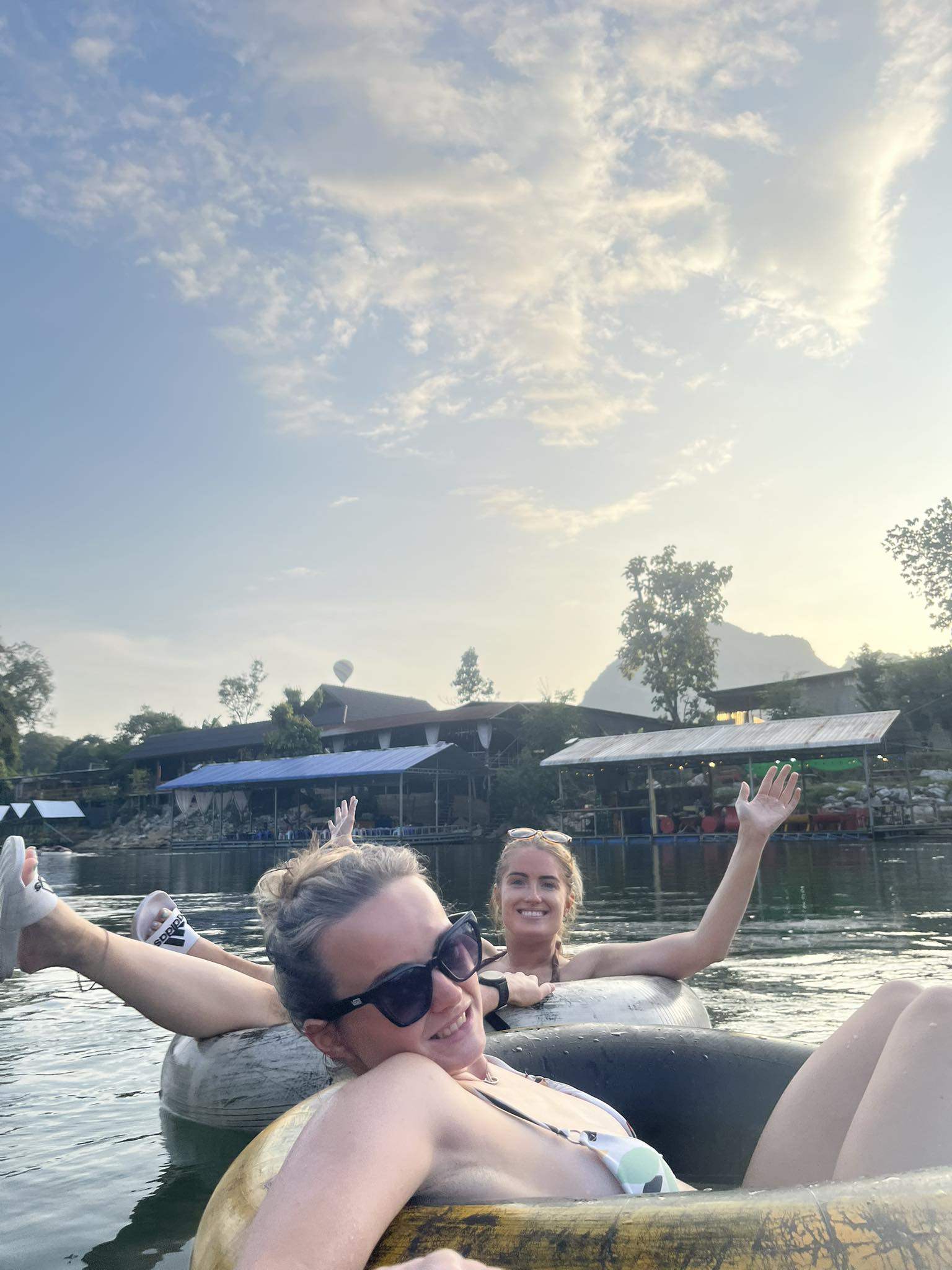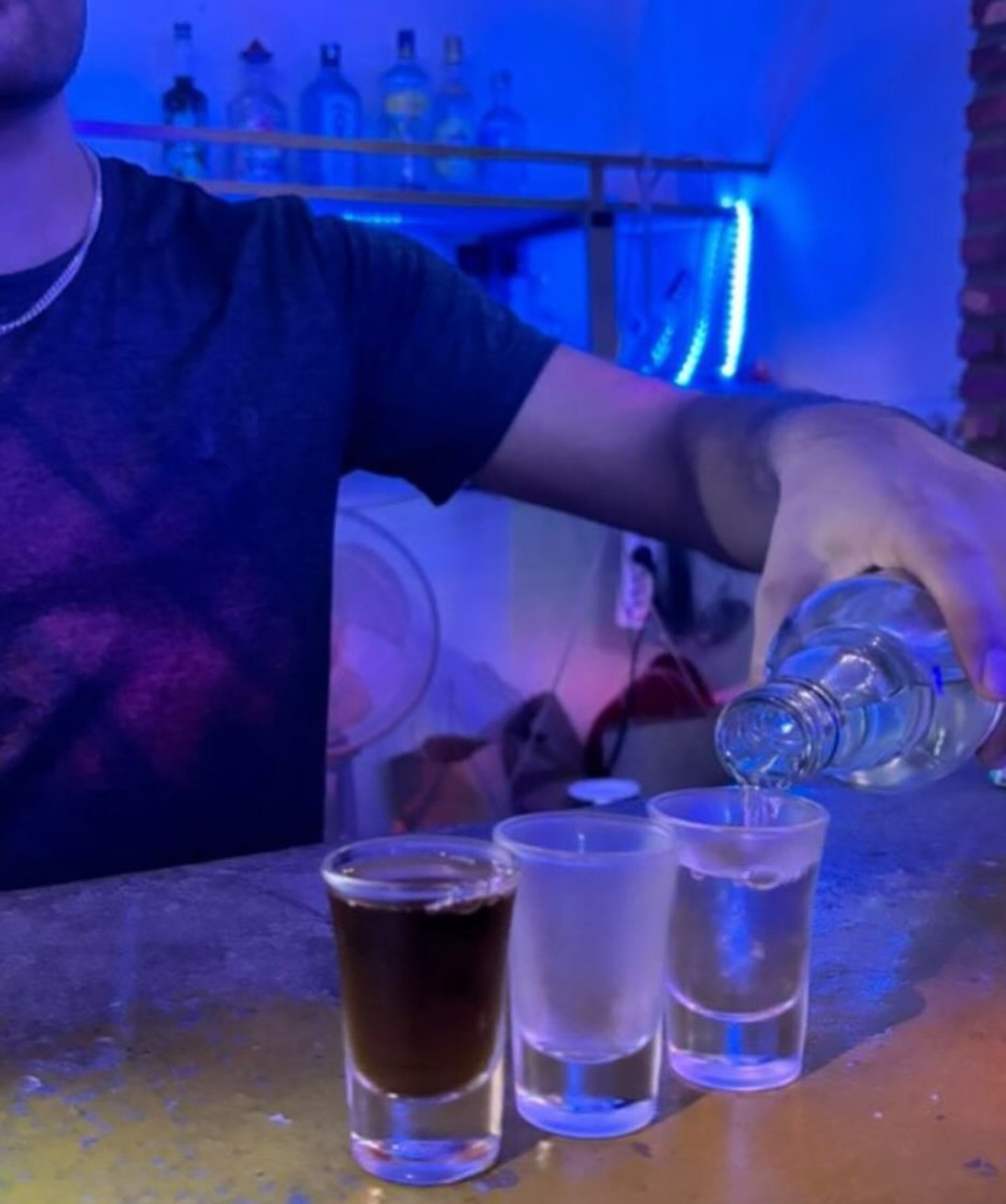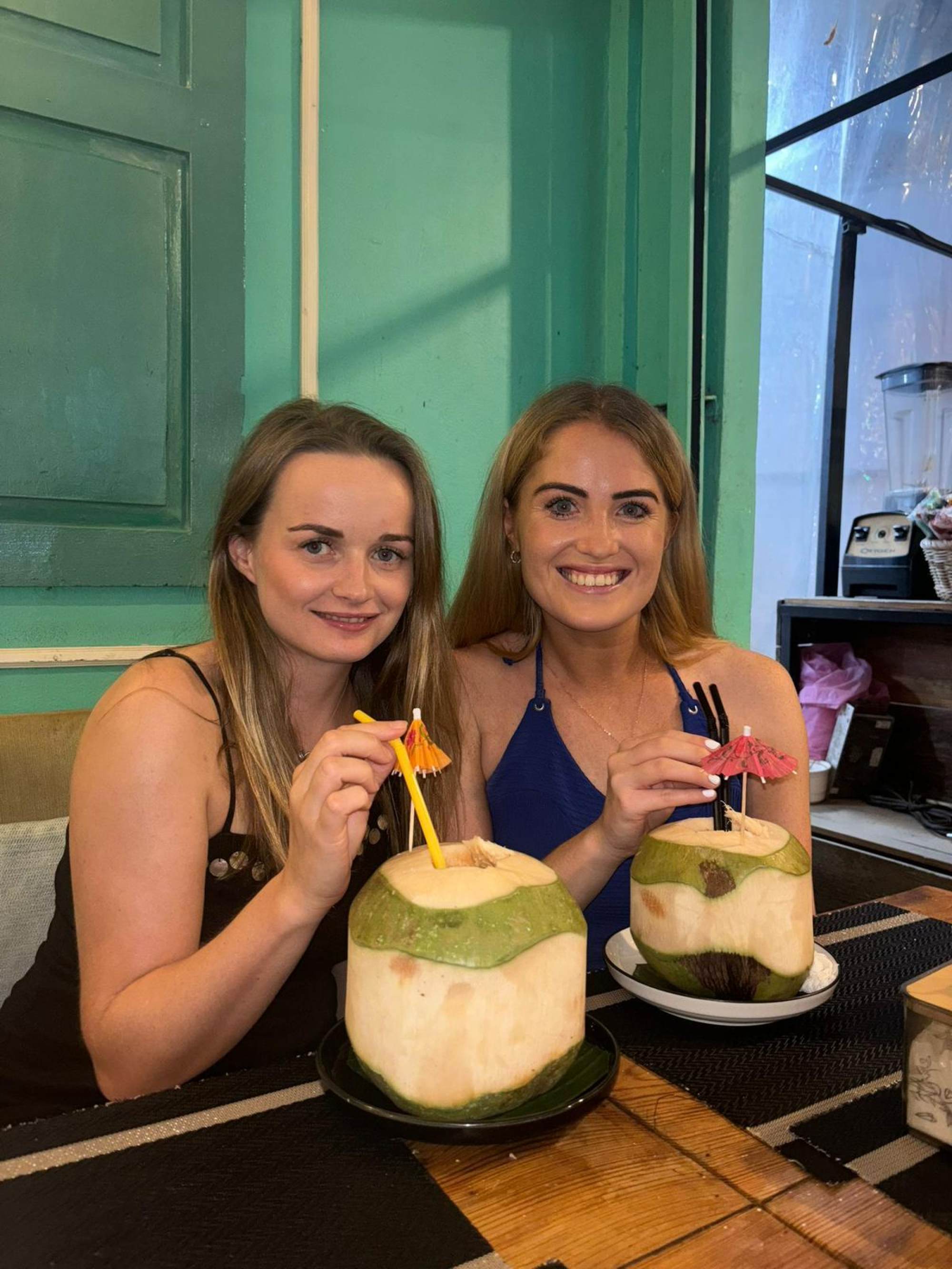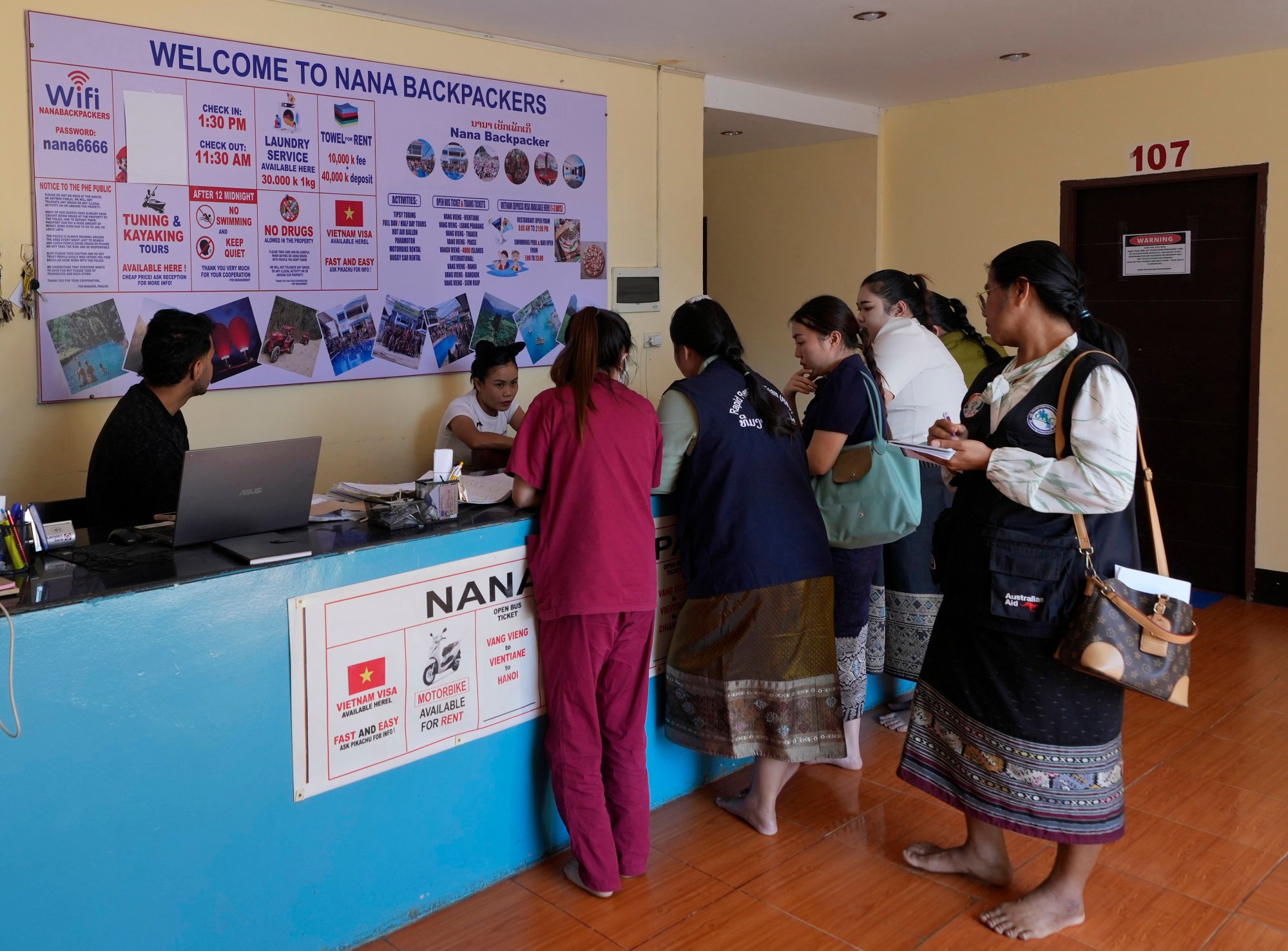‘I just felt sick’: how a free shot in Laos cost a British backpacker her life
Bethany Clarke’s dream backpacking trip turned into a nightmare when seemingly harmless free shots proved to be poison

British national Bethany Clarke still remembers that day in Vang Vieng, Laos – tubing down the river with friends, followed by a sunset happy hour at the Nana Backpackers Hostel. It had all the hallmarks of a classic backpacker afternoon. The vodka and whisky shots were free. The cost would come later.
It was November 12, 2024. The next morning, Clarke and her two companions – childhood friend Simone White and a male friend – set out early for a kayaking trip they had planned the day before. But instead of excitement, Clarke felt unusually drained.
“I just felt sick and we were lying flat on our backs in the kayaks looking at the sky. My brain wasn’t functioning. I didn’t feel like it was a hangover, but I couldn’t work out why. It didn’t make sense,” Clarke told This Week in Asia.
It was the beginning of a nightmare that would end in a hospital bed in Vientiane, with Clarke watching her best friend die from methanol poisoning – a preventable tragedy that, experts say, continues to result from periodic outbreaks of contaminated alcohol across Southeast Asia and claims hundreds of lives worldwide each year.

White, a 28-year-old lawyer from the UK, had also felt unwell that morning. Still groggy and confused, the group endured a torturous bus ride to the Laotian capital, first to visit a medical clinic before being referred to a larger hospital, as White’s condition quickly deteriorated.
On the way, Clarke’s male friend searched online for answers and found a possible cause: methanol – a form of alcohol that is highly toxic to humans, often found in bootleg or poorly distilled spirits. Just 25ml (0.8oz) – the size of a single shot – can be fatal.
Methanol poisoning occurs when the substance is not properly removed during the distillation process. Though it can cause serious harm or death, it remains a common hazard in parts of Southeast Asia, where low-cost, unregulated alcohol is widely sold to both locals and tourists.
According to Médecins Sans Frontières, there have been 1,200 reported incidents of methanol poisoning since 2019 that have affected more than 42,000 people and killed over 15,000. Eight of the top 10 countries with the most recorded incidents were in Asia, with Indonesia in the top spot.
Dr Dicky Budiman, a public and global health expert and medical doctor at Yarsi University in Indonesia’s Jakarta, told This Week in Asia that there were always methanol poisoning incidents every year across Southeast Asia, including in Indonesia and Thailand – with reported cases tending to peak around major holidays.
“As a general rule, however, methanol poisoning cases in Southeast Asia are not recorded well, under-detected and under-reported because of a lack of a proper surveillance system and the stigma of methanol poisoning,” he said.
According to Budiman, methanol poisoning occurs at local gatherings, parties and ceremonies, where alcohol is a key component, as well as in tourist destinations.
“Methanol poisoning can be fatal as it causes neuro-toxicity and has symptoms that include nausea, vomiting and blurred vision, although it can also cause a coma, permanent disability or death,” he said.
“The death rate for people with methanol poisoning is high – about 50 per cent – and generally that is because many people seek care too late.”

Budiman said there were several factors involved in why people delayed seeking treatment for methanol poisoning, such as lack of access to medical care in remote areas, and individuals keeping their symptoms a secret due to shame.
“Methanol also has no colour and no distinct smell, so it is difficult to identify it without laboratory testing,” he said.
Phil Robertson, the director of Asia Human Rights and Labour Advocates, told This Week in Asia that the methanol poisoning deaths in Laos put a perennial issue back in the headlines, but that “methanol poisoning is a serious problem that constantly recurs in countries across Southeast Asia and kills thousands every year”.
“Sadly, since these incidents mostly happen to local poor people, the authorities don’t do much beyond catching the immediate distributor,” he said.
While the hospital eventually operated on White to reduce swelling to her brain, Clarke said medical staff initially incorrectly suspected that the trio had food poisoning – despite White suffering from a series of seizures.
Following the unsuccessful surgery, the hospital informed White’s family that there was nothing more that could be done but that, for religious reasons, the hospital could not take her off life support. In the end, White’s mother, who had flown from the United Kingdom to be by her daughter’s bedside, turned off the life support machine.
Recurring problem
White was not the only reported casualty of methanol poisoning that fateful night. Two Australians, two Danes and an American also died, and it was suspected that many others, including six British nationals, had been seriously ill.
Clarke said she had heard reports from Laos that Nana Backpackers Hostel was set to reopen, although This Week in Asia was unable to reach the hostel for comment.
According to Robertson, methanol poisonings remain prevalent in Laos as there is little political or legal appetite to tackle the situation.
“There’s no wider effort to eradicate the problem. What is really needed are systematic efforts to improve education and safety standards, ensure consistent and diligent enforcement of regulations … and, most importantly, impose severe punishments on officials who look the other way,” he said.
“While additional foreign tourists may escape getting poisoned by methanol, you can be sure that poor Lao people will not because local authorities are more interested in continued corruption and kickbacks rather than protecting people’s health. That’s why these methanol poisonings keep recurring, year after year.”
Budiman agreed, calling for myriad approaches to tackling the widespread problem of methanol poisoning across Southeast Asia, such as training and certification for local brewers and checks on locations selling locally made alcohol.
A “track and trace” system to check the provenance and authenticity of alcohol would also be beneficial, he said, adding that local healthcare providers across Southeast Asia needed to be more aware of the dangers of methanol poisoning and respond faster to suspected cases.

Immediately following the poisonings, local police said they had detained a number of employees at the hostel, in addition to the owner of a factory brewing Laotian spirits.
It is not clear if any of them have been formally charged. This Week in Asia tried to contact Laos’ ministry of foreign affairs for comment on the progress of the case, but has not received a response.
Clarke said one of the main issues with methanol poisoning was the lack of education. She and her friends had been only vaguely aware of the potential dangers, despite having travelled widely around Southeast Asia.
“Even if you do know about methanol poisoning, many people are not well enough to seek care, and try to sleep it off, which is the worst thing you can do,” she added.
Clarke now hopes that testing strips will be developed so that travellers can test for methanol in drinks, and is lobbying the UK government to make education about methanol poisoning part of school curriculums.
The government has yet to comment on Clarke’s petition to raise awareness about the dangers of methanol poisoning, but for now, her advice to potential travellers is simple.
“Avoid wine or spirits. Steer clear and drink beer.”